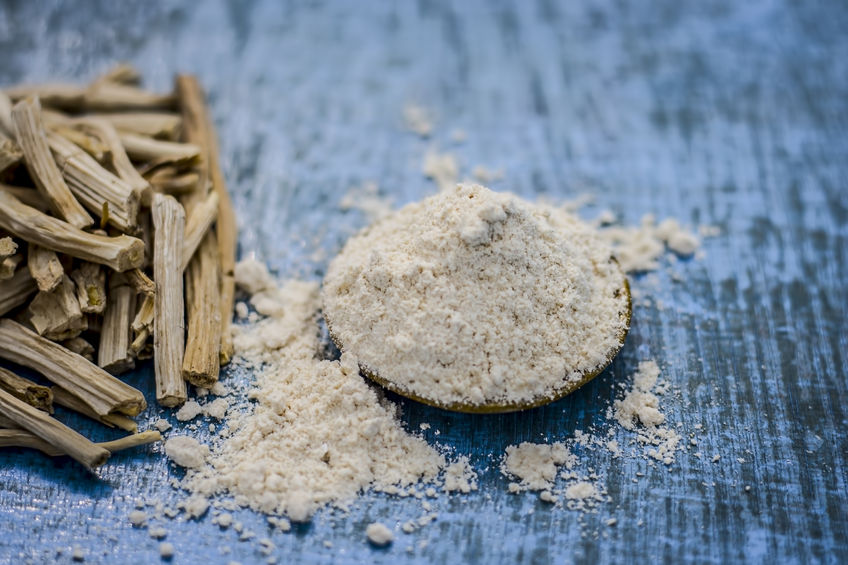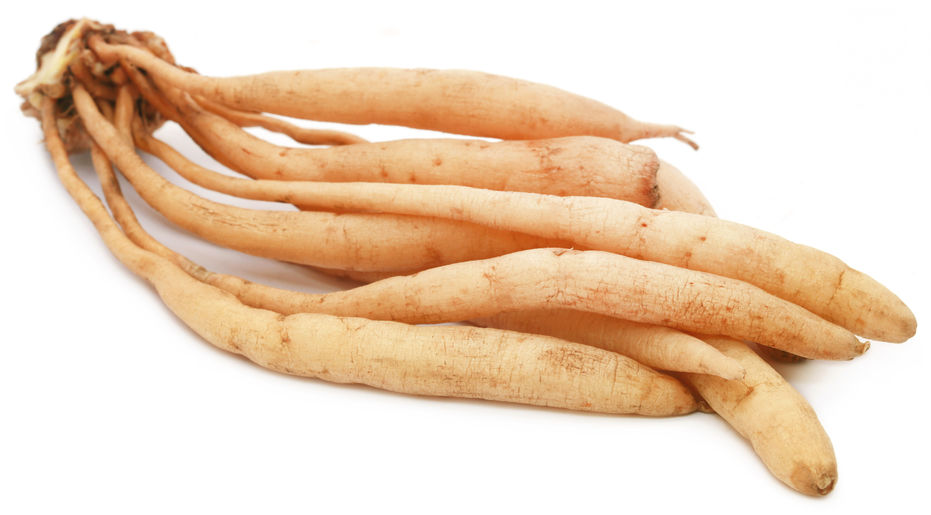
There has been a lot of mention of Shatavari lately in Yoga magazines and Ayurvedic journals. I had personally never heard of the herb until I began studying Ayurveda. After reading more about it, it seems like the perfect remedy for women (and men) suffering from fertility issues. Read on to find out more!
Shatavari (asparagus racemosus), also known as the asparagus root has been used in Ayurveda for ages to support the reproductive system. Due to its cooling and grounding nature, it helps to balance excess Pitta and Vata.
In Sanskrit, Shatavari literally translates to “one who possesses a hundred husbands” due to its ability to nourish the reproductive system. The root possesses hormone-like properties which help to regulate the menstrual cycle especially in the case of imbalanced Pitta when there is excessive menstrual bleeding, painful menstruation, burning, and irritation.
Not only does Shatavari help women to regulate their menstrual cycles, it also helps transition women during the natural cycles of life including reproduction, postpartum, and menopause.

Health Benefits of Shatavari:
- regulates the menstrual cycle
- balances female hormones
- supports fertility in both men and women
- promotes breast milk production
- increases energy levels and restores balance at an emotional level
- naturally high in antioxidants
- supports the digestive system

How to take Shatavari:
Shatavari is overall a great herb for women in all phases of life. It can be found in powder form or in tablets. Tablets are great for anyone looking for an easy way to incorporate this herb into their daily routine. Ayurveda prefers the use of herbs in a powder form. The powder can then be mixed with warm water, warm milk, or even ghee to optimize it’s absorption in the body.
How often and how much Shatavari to take vary by what the health concern is. Here are some guidelines.
The Shatavari Rasayana:
Take 4 parts Shatavari powder, 2 parts ghee, 2 parts sugar (or sucanat), 1/3 part cardamom, and a pinch of saffron threads. Combine and heat in a cast iron pan on low heat stirring until the mixture is slightly brown and aromatic.
Overall fertility support (for men and women):
Take 1 tsp of the Shatavari Rasayana combined with warm milk or warm water 1 hour before bedtime daily.
Regulating menstrual cycle:
Take 1 tsp of the Shatavari Rasayana combined with warm milk or water twice a day.
Pregnancy:
For energy during pregnancy, ¼ tsp of Shatavari powder combined with ¼ tsp of Ashwagandha powder can be mixed with warm water and taken 1-2 times a day.
Lactation support:
Take 1 tsp of the Shatavari Rasayana combined in warm milk twice a day after lunch and dinner.
Menopause:
½ tsp of Shatavari powder combined with ½ tsp of Vidari (yam) powder mixed with warm water can be taken 3 times a day.
Post-hysterectomy:
Take 1 tsp of the Shatavari Rasayana, add ¼ tsp Turmeric powder, and take twice a day with warm milk or warm water.

Side Effects and Contraindications:
There have been no reported side effects of Shatavari, however, anyone allergic to Asparagus root should not take the herb. If you are on other medications especially diuretics, you should always consult your physician or Ayurvedic Practitioner prior to starting a new medication or herb.
Shatavari should not be taken if there is excess Kapha in the body. Cough, congestion, sticky bowel movements are all indicative of excess Kapha. Taking Shatavari with excess Kapha can exacerbate the imbalance further and lead to Ama (toxin) formation within the body.
Below are my recommendations of which Shatavari to purchase. As always, please leave me a comment and let me know if there are any other herbs you’d like to hear about and if this information was helpful!
Namaste.
This post may contain Amazon Affiliate links from which I may earn a small commission. At Honey, Ghee, and Tea, my readers’ health and wellness is my #1 priority, therefore I only recommend products that I (or my family) have personally tried.

Great information about benefits of satavari